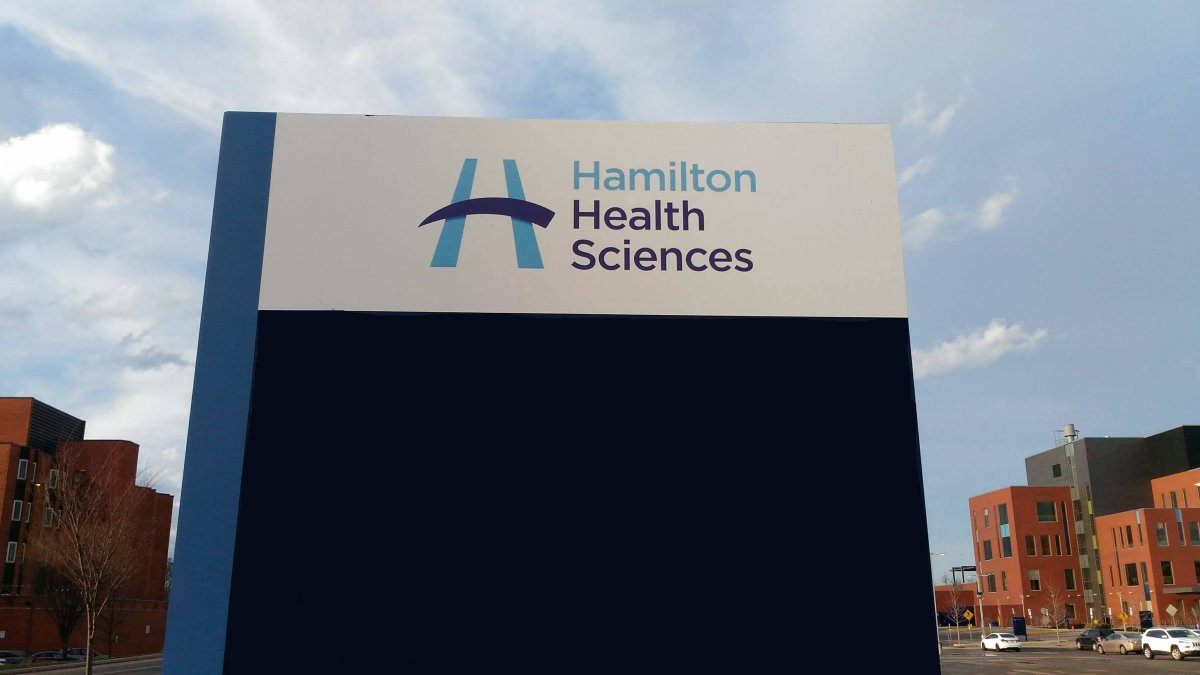On Thursday, Hamilton Health Sciences (HHS) hospitals will begin COVID-19 screening protocols, and the agency is recommending patients and visitors arrive earlier than expected to its health-care facilities.

In a release, the agency said it’s not only running screenings for the new coronavirus but that it has also begun restricting visitors to the hospital, allowing only one visitor per patient at a time between the hours of 10 a.m. and 8 p.m.
With the new screening process, access to the hospitals will be reduced to main entrances as well as parking and emergency entrances, where available.
The affected hospitals are Hamilton General, Juravinski, Juravinski Cancer Centre, McMaster University Medical Centre, St. Peter’s, and West Lincoln Memorial.
Upon arrival, patients and visitors can expect to be asked general questions about their current health, recent travel history and contact with those who have recently travelled overseas.
Earlier in the week, HHS converted some clinic appointments to online virtual care sessions to reduce traffic in its hospitals.
All non-urgent, scheduled care and procedures, as well as ambulatory clinics, have already been paused.
St. Joseph’s Healthcare Hamilton began their COVID-19 screening protocols on Tuesday and is recommending staff, patients and visitors arrive at health-care facilities at least 30 minutes before any scheduled appointments.
St. Joe’s also began restricting visitors to the hospital, allowing only one family member at a time between the hours of 10 a.m. and 8 p.m.
The hospital goes on to say it’s suspending elective surgeries and other non-emergency activities in addition to encouraging online virtual visits to reduce face-to-face, non-essential clinic visits as set out in guidelines by the provincial government to maximize resources during the COVID-19 outbreak.

Hamilton’s total number of positive tests for COVID-19 is now at 19, according to the city’s public health unit on Wednesday.
Ontario says two of the new cases are connected to travel, with a woman in her 30s having returned from the Caribbean and another a woman in her 70s who had been to Mexico.
Hamilton Public Health Services says another has ties to the Heritage Green Nursing Home in Stoney Creek.
An 80-year-old woman was brought to St. Joseph’s Healthcare on Monday for scheduled treatment.
During her visit she began displaying symptoms, and was moved to isolation where she remains.
Seven hospital staff are now self-isolating. No patients have been put at risk, according to public health officials.
No new cases have been reported in Niagara. There are three people under investigation in that region after positive tests.
Brant County Health Unit (BCHU) confirmed its first case of the novel coronavirus on Wednesday after a woman in her 40s returned to Canada through Hamilton airport. Woodstock Hospital identified the woman as a healthcare work at its hospital.
A pair of COVID-19 assessment centres are now open at Hamilton Health Sciences’ urgent care clinic at 690 Main St. W. and the east-end clinic at 2757 King St. E., which is operated by St. Joseph’s Healthcare.
The assessment centres are by appointment only for those who have a referral from their doctor or Hamilton Public Health based on symptoms such as a cough or fever, travel history and exposure to known cases.
- 3 women diagnosed with HIV after ‘vampire facials’ at unlicensed U.S. spa
- Solar eclipse eye damage: More than 160 cases reported in Ontario, Quebec
- ‘Super lice’ are becoming more resistant to chemical shampoos. What to use instead
- Canadian man dies during Texas Ironman event. His widow wants answers as to why
Questions about COVID-19? Here are some things you need to know:
Health officials say the risk is low for Canadians but warn this could change quickly. They caution against all international travel. Returning travellers are asked to self-isolate for 14 days in case they develop symptoms and to prevent spreading the virus to others.
Symptoms can include fever, cough and difficulty breathing — very similar to a cold or flu. Some people can develop a more severe illness. People most at risk of this include older adults and people with severe chronic medical conditions like heart, lung or kidney disease. If you develop symptoms, contact public health authorities.
To prevent the virus from spreading, experts recommend frequent handwashing and coughing into your sleeve. And if you get sick, stay at home.
For full COVID-19 coverage from Global News, click here.





Comments